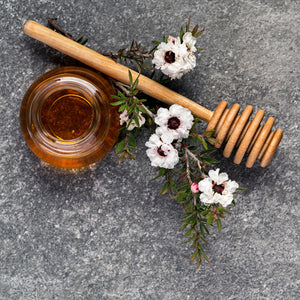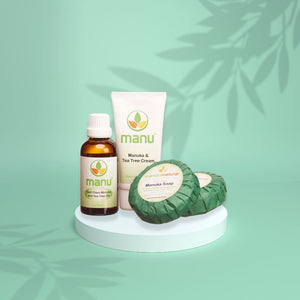
You don’t have to be 60+ to wake up sore!

Mornings could be the worst.
I say, “could be.”
People wake up sore and still wondering if there is a “miracle” therapy in the form of a cream, capsule, injection, or some of the latest devices that would quickly and effectively solve their joint and muscle waking problems.
I wish I could say it gets better with age. But it doesn’t have to get bad either.
It is not pleasant when you wake up sore after 8 hours of sleep, barely getting out of bed. Every bone in your body hurts.
These unpleasant pains can pass quickly, but there are also cases where they last 30 minutes or more than an hour.
Doctors point out that there is no magic cure for morning stiffness and pain. I agree, but not entirely.
Let’s together see why.
Where do morning pains come from? Do you wake up sore?
- Poor sleep posture or poor sleep quality makes you move around all night trying to be comfortable.
- Your body fought off an illness that gives you muscle fatigue. It’s possible that you did not notice the symptoms or that the other signs were minor.
- Your muscles are getting broken down by your body because you haven’t used them much. Muscles take a lot of energy to maintain, so if you don’t use them, you lose them.
Morning pain is most often associated with degenerative diseases of the joints, that is, cartilage wear and ossification of the joints.
The direct culprits for this are mild inflammations of the mucous membrane that covers the inside of the joint.
However, it also may result from inflammation of the surrounding soft tissues, that is, tendons and ligaments surrounding the joints.
This is important because proper treatment can resolve problems quickly, although worn-out cartilage and ossification of the joints are still present.
Wake-up-sore lasts more than an hour
Morning bone pain can be a consequence of arthrosis, a chronic degenerative joint disease.
Osteoarthritis most often affects the knee and hip joints since these two joints take the greatest load. In addition, morning pain can sometimes be a consequence of rheumatoid arthritis, which, according to some estimates, affects about 0,5% in European countries.
When it comes to arthrosis, i.e., wear of cartilage and ossification of joints, morning stiffness does not last longer than 30 minutes and passes after movement.
On the other hand, in rheumatoid arthritis, pain and stiffness in the joints usually last longer than one hour.
Did you know that losing just 5 percent of your body weight relieves knee pain?
After a couple of months and losing only a few pounds, you can improve your biomechanics and relieve the knees. Then watch how the long-lasting pains almost entirely disappear.
The simplest and best prevention for waking up sore
The best prevention is a combination of regular physical activity and unloading of the musculoskeletal system.
The simplest and most accessible way for everyone is walking because it moves almost all the muscles and joints in the body. Of course, cycling is good too, but it should not replace walking because it activates a much smaller number of muscles.
Spine, joints, and muscles are created for activity, which is why only by changing life habits can they be optimized and brought to a painless and functional state.
Also, if you’re doing exercises, they don’t have to be strenuous.
Of course, all this is possible if there is no swelling of the joints and severe pain.
How can you unload your musculoskeletal system?
First, lose some weight.
Second, bring ingredients to your body that stimulate the massive reproduction of different cartilage cells.
DEER ANTLER VELVET TO WAKE UP SORE-FREE
Deer antler velvet contains a thing called Epidermal Growth Factor (EGF). It is a protein that stimulates cell growth and differentiation by binding to its receptor.
Epidermal growth factor (EGF)-like activity was isolated for the first time from the submaxillary gland of the velvet antler in red deer. This protein, therefore, plays a significant role in determining the nature and speed of growth of velvet skin.
For us, it is important because it stimulates the rapid reproduction of different types of cells, especially fibroblasts and epithelial cells, which are essential for your cartilage.
The epidermal growth factor receptor (EGFR) represents one of the longest-studied growth factor receptors in research history. Decades of studies have concluded that EGFR signaling plays an essential role in cartilage development.
What does EGFR do for your body?
The EGFR gene gives instructions for producing a protein called the epidermal growth factor receptor located on the cell surface. Binding factors to this receptor activate signaling pathways that lead to cell proliferation and differentiation.
Almost all cell types express EGFR family members. Hence, it is no surprise that these are important for the normal development and physiology of vertebrates.
To date, studies from many groups demonstrated that EGFR is critical in maintaining the number and function of articular cartilage chondrocytes (cells responsible for cartilage formation), particularly those in the superficial layer.
In like manner, stimulation of EGFR receptor resulted in a thickened layer of adult articular cartilage. This is because EGFR signaling promotes the lubrication of the articular surface by increasing the number of boundary lubricants.
EGFR protein also regulates the mechanical properties of articular cartilage. (1)
Like some other growth factor signaling pathways, EGFR exerts dual actions on articular cartilage.
Chondrocyte proliferation is rare in adult and aged articular cartilage, and its survival action is likely the main contributing factor to the maintenance of cartilage.
On the one hand, it plays an anabolic action by stimulating cells responsible for cartilage formation and survival. In addition, EGFR promotes the lubrication function of the articular surface.
Since lubricants are essential for normal joint movement, EGFR protects the superficial layer against cartilage deterioration at the initiation stage of the OA. (2)
On the other hand, EGFR regulates the mechanical properties of articular cartilage by preserving the bone matrix. Therefore, the overall effect of EGFR on OA development is determined by the balance of these two opposite actions. But most likely your age.
The older you are, the more time you’ll need to start seeing results.
How much time? You can find out here.
You sit all day under stress, you eat unhealthy snacks, and then wake up sore
To a large extent, the culprits for these pains are some life habits, such as prolonged sitting, excess weight, poor physical activity, and inevitable stress.
Prolonged sitting and lack of physical activity weaken the surrounding muscles, which give stability to the joints and spine and cause poorer blood circulation and impaired cartilage nutrition.
Should I say more?
Stress leads to muscle tension, which disrupts the biomechanics of the joints and spine, and somewhere along the way, leads to an increased desire for food.
Proof of how much obesity affects the joints’ health is that a reduction in body weight of 5% reduces the intensity of knee pain. An unhealthy diet and gaining weight also lead to excessive intake of various toxins that are abundant in industrial food.
All this is spread through the blood to the joints and impairs your health.
What else can you do?
A good pillow, blanket, and mattress can go a long way.
However, you might need more support when sleeping. Try to get your pillow situation right. I’ve seen people discuss success with those body-surrounding pregnancy pillows.
Also, doing light yoga stretches when you wake up is a way to go…anywhere. The stretches should be those where you are laying down and doing what feels good.
Child’s pose and supine twist are my favorites, along with something to stretch my shoulders out.
Just light stretching to avoid ‘charlie horse.’
So make sure you have enough time to let your body wake up before trying to do stuff.
And if you’re using Meloxicam so you could sleep through the pain and it is working pretty well, remember that it is a drug.
Maybe you can try something different and natural next week?
In the end …
Simply, one must understand that adequate physical activity, a healthy diet, and work on oneself, in the psychological sense, are essential needs.
Experts are here to make the beginning of that process easier but not to divert us from the right path with wrong advice.
Don’t trust anyone?
It’s ok.
Arm yourself with knowledge first. You can start here on Manuka Natural blog.
Please share this with your social media contacts or anyone you think could benefit from manuka honey.
ORIGINALLY PUBLISHED on blog.manukanatural.com



Leave a comment